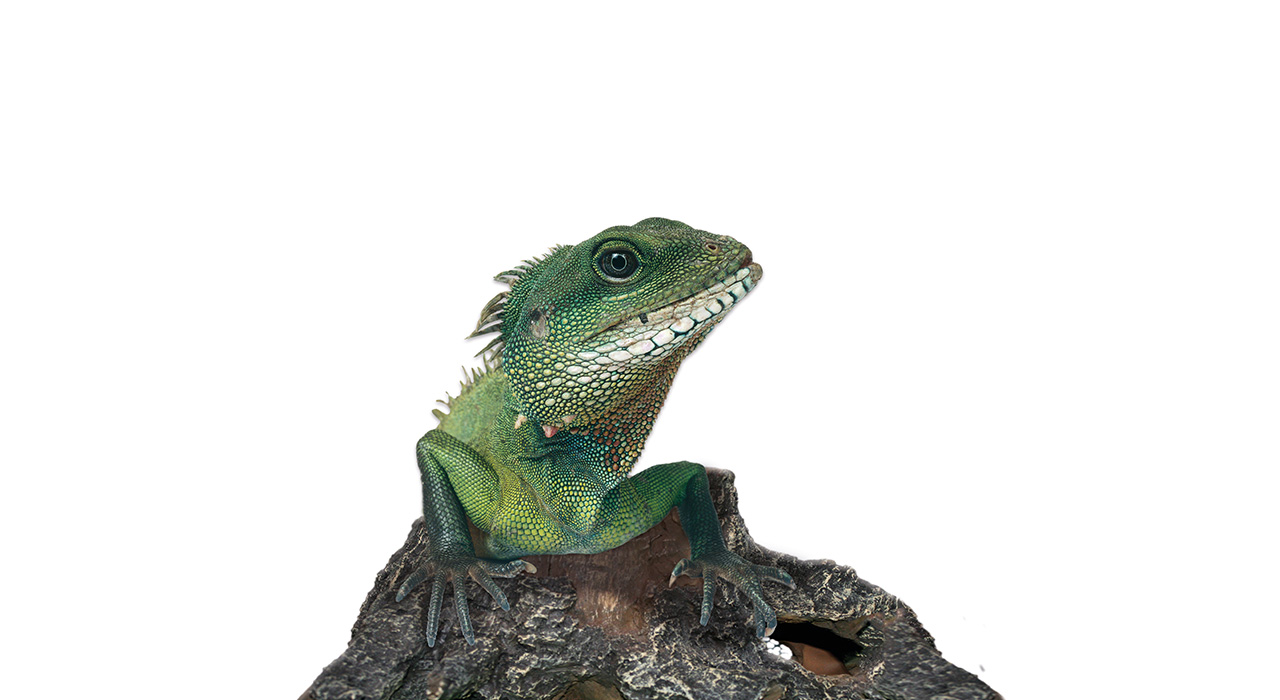Reptiles can suffer from many health problems and diseases. Some disease symptoms might be difficult to spot, and making a wrong diagnosis can
lead to maltreatment. If you are in doubt, contact your veterinarian or an experienced reptile retailer.
 Advice on common reptile health problems
Advice on common reptile health problems
With so many species of reptiles, each with their own problems and ailments, it is difficult to pick out specifics in this
short overview. There is a lot of information on the internet, but not all contributors are experts, so be careful which
advice you follow. It is a good idea to build a relationship with your local expert retailer, or to join a local group
of enthusiasts.
Metabolic Bone Disorder in Reptiles
A common cause of ill-health in many reptiles is metabolic bone disorder, which develops as a result of the animal being
fed an unsuitable diet. Tortoises and terrapins are particularly at risk, but many species are susceptible to the problem.
It is caused by an insufficient absorption of calcium from the diet, which can come about as a result of:
- Being fed a diet deficient in calcium.
- Being fed a diet containing too much phosphorous.
- Being fed a diet deficient in vitamin D.
- A lack of exposure to UV light (either from the sun or artificial UV light).
In lizards, this may be seen as an abnormal posture or gait. In extreme cases, it may result in fractures and injury
to nerves. In chelonians (tortoises and terrapins/turtles), the shell becomes softened and misshapen.
Reptile Dietary Requirements
Most reptiles need a diet of 1.5:1 to 2:1 calcium : phosphorus to avoid metabolic bone disorder. Nutritional
supplements, such as Beaphar Reptile Vitamins & Minerals, are available to help you achieve this. Feeder insects
can be fed on calcium rich diets, such as Beaphar Cricket Food, or dusted with a supplement, before feeding to insectivorous
reptile species.
A major zoonotic concern (a disease that can be passed from animals to people) for reptile owners is Salmonella poisoning.
Salmonella can be intermittently shed by many types of healthy reptile, and good hand hygiene is essential if the disease
is not to spread to the owner and his/ her family. Botulism has also been known to be transmitted from terrapins to their
owners, so care is needed when handling these animals. To minimise the risk of infection, regularly clean out your pets’
living quarters, and finish your cleaning routine with an application of Beaphar Deep Clean Reptile Disinfectant, which
has proven efficacy against Salmonella, MRSA and E. coli. It is also a good idea to keep a container of anti-bacterial
hand cleansing gel next to the terrarium, to ensure that you can easily disinfect your hands after handling you pet.
Fungal Infections in Reptiles
Fungal infections an occur if the skin becomes damaged, especially for those species that prefer to live in damp conditions.
Beaphar Anti-Fungal Spray is suitable for use on both reptiles and amphibians and is effective against all the common
fungal pathogens.
Internal Parasites in Reptiles
Internal parasites affect wild-caught reptiles, but are rare in those that have been captive-bred. Always speak to your supplier
or retailer about the origins of your new pet so that you are happy, ethically, about its supply, and confident that
it is in good health.
Ectoparasites in Reptiles
Ectoparasites such as mites, attach to the skin of reptiles between their scales, especially in skin folds, near
the eyes and in ear recesses. They are characteristically red or black “dots”, seen either attached to the animal or moving
around on its skin or in the environment. These parasites are particularly troublesome for some species of snake, but
also affect lizards. Effective treatment for skin mites can take some time and may require several repeat treatments.
Beaphar Insect Spray (recently renamed Beaphar Mite Spray) contains the active ingredient Ivermectin and is the product
of choice for use against this parasite. It is also essential to thoroughly clean the vivarium, ideally using a suitable
disinfectant, such as Beaphar Deep Clean Reptile Disinfectant. Substrates should be changed and cage “furniture”, such
as mosses, bark, etc, should be placed in the deep freeze for 24-48 hours to kill any free-living stages. Always thoroughly
check a newly acquired animal for skin parasites before introducing it to your collection. It may be necessary to quarantine
and treat a new pet before permitting it to mix with others.

No comments:
Post a Comment